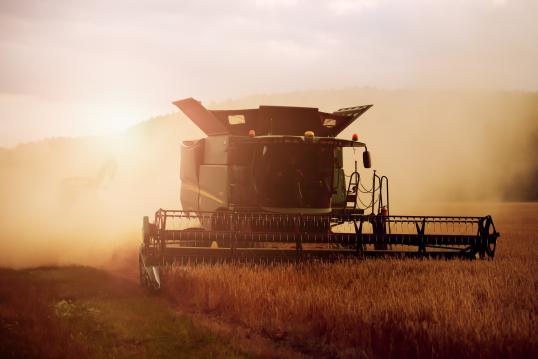The rebates on diesel fuel tax in farming aim to help lower production costs for farmers and increase the competitiveness of Poland’s agriculture sector. Beginning in 2006, Poland allows farmers to apply for rebates on payments of the excise duty on fuels to offset the tax imposed on diesel fuel. The amount of the refund per litre is determined each year by the Council of Ministers. In 2002, the refund amount is set at EUR 0.22 per litre. This scheme has already undergone several reforms. At the start, the refund was limited each year to 100 litres per hectare of utilised agricultural area. In 2019, it was reformed to increase the limit of the rebate for farmers owning cattle to 30 litres per average yearly number of large cattle units owned. In 2021, the subsidy underwent another reform to increase the limit of refundable fuel to 110 litres per hectare of agricultural area and increased the limit on diesel fuel consumption to 40 litres per average large cattle unit. The main beneficiaries of this rebate are farmers, especially small farms. Other countries with a similar rebate include Croatia, the Czech Republic, France, Germany, Spain and Sweden.
The rebates on diesel fuel tax in farming have increased each year. In 2020, the budget impact of the rebate was EUR 201 million. If the subsidy were to be removed, the price for diesel fuel in agriculture would increase by 16%, and demand would decrease by 3.2%.
The subsidy makes fuel cheaper and reduces the incentive for fuel-efficiency. If the rebate were removed, greenhouse gas emissions in Poland would decrease by 390 thousand tonnes each year. In addition to emissions, another environmental impact includes the effects associated with cattle breeding. Cattle farming has higher CO2 emissions and affects land use, biodiversity, soil contamination and a decrease in groundwater levels.
This subsidy has already undergone several reforms and will likely be reformed in the future. The Energy Taxation Directive might change the taxation structure to base tax rates on energy content and environmental performance and may further target fossil fuel exemptions. The most recent subsidy reform was enacted in January 2022, but the recent spike in fuel prices has caused farming groups to call for a greater increase in the refund amount to EUR 0.66-0.77 per litre and to increase the limit of refundable fuel per hectare of the agricultural area to 126 litres. Smaller farms benefit from this subsidy and successful reforms in the future should consider a gradual phasing out of the fossil fuel subsidy, timing the phasing out when fuel prices are lower, offering farmers a lump sum payment not linked to fuel consumption, environmental conditioning of subsiding fossil fuels related to technology improvements and subsidising energy transitions.
More information on rebates on diesel fuel tax in farming and other candidates for reform in Poland and other Member States can be found in the country case studies and factsheets compilation.

